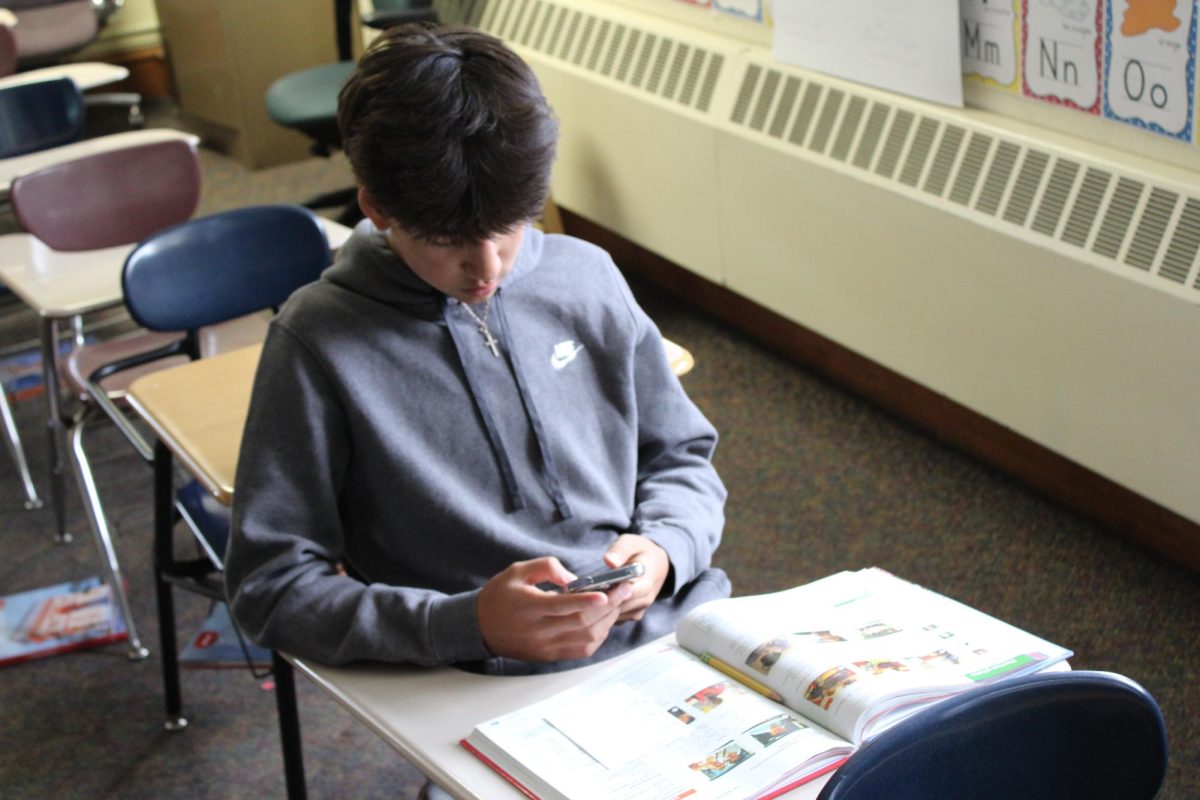Central students have voiced many worries regarding the results of Nebraska ballot initiatives in November’s general election, as well as what is to follow in January with Trump’s presidency.
Initiative 434 and 439 were voted on and results are as follows: 434 was passed and therefore will be written into Nebraska’s state constitution, prohibiting abortions after the first 12 weeks unless it is regarded a medical emergency or a result of sexual assault or incest. Initiative 439, which would have allowed for abortion without interference from the state, did not pass.
Additionally, president-elect Donald Trump said he would not sign a federal abortion ban but would leave it up to the individual states instead. He also does not plan on banning contraceptives, but many of his proposals would make it less accessible.
The Register conducted a survey and held interviews to gather the perspectives of Central students. In the survey, 51 out of 57 students answered a six or above on a scale of one to 10 when asked how worried they were about access to birth control and abortion following the election results.
Although these decisions affect Nebraska, Caprice McCoy, a junior, was optimistic of turning toward neighboring states for help. Abortions in Kansas are legal up to 22 weeks and 24-26 weeks in Wyoming. There are no restrictions in Colorado, according to Guttmacher Institute.
“Worst case scenario, you’d have to catch a plane,” she said.
McCoy mentioned a notable point of concern for America, and it has to do with South Korea’s 4B movement. This refers to a feminist movement in which straight women refuse to date, marry, have sex or have children with men.
Trump’s win has surged interest in this movement across social media. According to CNN, women say they are “enraged and fed up” after many men voted for a candidate that not only was found liable for sexual abuse but also appointed the conservative Supreme Court justices that led to the overturning of Roe v. Wade. In response to this, “[women] say they’re swearing off men and [are] encouraging others around the country to join them.”
McCoy saw instances of this on the TikTok. What upset her were the comments left on creators’ posts.
“[Men] would respond with rape [as an option],” McCoy said.
Ultimately, McCoy does not believe it matters what perspective people hold, if they do their own research and are knowledgeable on the topic at hand. However, because of heavy reliance on social media, she believes TikTok users are not getting factual information.
“I really wish people would do their research and not vote out of emotion—not even for the country, but for themselves and the people around them,” she said.
With Nebraska’s abortion rights restricted further, there is speculation on future restrictions of contraception.
Freshman Arlyn McCabe does not think the results of Nebraska’s election will affect McCabe personally, but they want to have the option available to all women.
“Even if I don’t plan on using birth control, taking it away from all women is not fair,” they said. “We shouldn’t have to fight for the right to make choices about our own bodies.”
McCabe expressed concern surrounding Project 2025, an agenda Trump supports for America. They are worried about what could happen to women’s rights, especially with the “My Body, His Choice”/ “Your Body, My Choice” trend they have seen circulating online.
“I think that’s the scariest thing about all of this; we don’t really know what exactly is going to happen,” McCabe said.
To sophomore Sydney Gniffke-Leak, the issue of reproductive rights is very important. She, as a teenage girl, would like to grow up in a world where she is free to make decisions about her own body.
“Even though I am not likely to be personally affected by the results of these recent elections, I fear for any woman in America who will be,” she said.
Gniffke-Leak was not surprised by the results given Nebraska is a conservative state, but she fears how far America will go with reproductive restrictions, such as the banning of birth control or contraceptives.
“I dread the knowledge that I will not be able to make choices drastically affecting my own life if it comes down to it,” she said. “This will impact women all across the country, and could very well harm people in Nebraska, or Omaha specifically.”
Senior Owen Fuesel had not read Trump’s specific reproductive rights proposals but felt that although it sounds like the president-elect will not outright ban contraceptives, he would enact policies that would make them harder to obtain. Fuesel said that women should have a fundamental right to their personal health.
“In which cases are men denied access to healthcare?” he said.
Fuesel was frustrated about the ways in which Initiatives 434 and 439 are written. When talking to one of his friends after the election, he mentioned how “[he] didn’t know if [he] even voted for the right one, because the wording was made to be confusing.”
However, Fuesel is amazed at how proactive people are towards the situation.
“We’re growing up in a world where we see our rights being attacked and because of social media and globalization we are more aware of challenges and the consequences of rights being taken away,” he said. “[But] people are stepping up a lot [and] I don’t think our generation gets enough credit for this.”
















